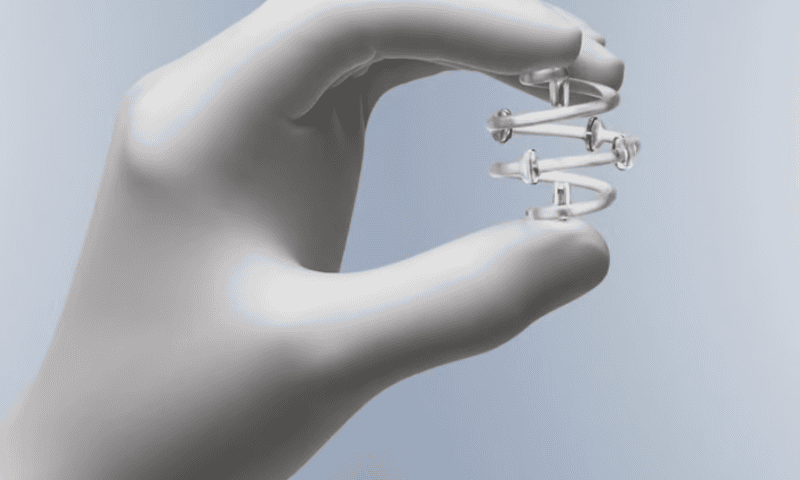The FDA put out a safety communication Tuesday warning about the possibility of “serious complications” tied to the use of Hologic’s BioZorb devices.
The coil-shaped markers are implanted in soft tissue—often in the breast, during conservation procedures—to flag the exact location of a lumpectomy or other removal procedures so it’s easy to find during future checkups, radiation treatments and other exams.
The BioZorb markers’ spiral is made of plastic and designed to be absorbed into the body over the course of at least one year. Meanwhile, six titanium clips placed along the spiral are meant to stay in place permanently, continuing to mark a tumor excision site even after tissue has grown into the space where the spiral once was.
Hologic acquired the BioZorb portfolio as part of its buyout of Focal Therapeutics, which closed in the fall of 2018 for $125 million.
More than a decade after it was approved by the FDA in 2012, the BioZorb is now the subject of an agency alert. This week’s safety notice cites an undisclosed number of reports sent to the FDA as well as published literature reviewed by the regulator detailing adverse events that have occurred after the markers’ implantation.
Among those complications are instances of migration, where implants shift from their original position, and erosion, where they move enough to break through the skin. If the device migrates to break through the chest cavity or blood vessels, the consequences can be “severe and potentially life-threatening,” according the FDA.
Other reported adverse events linked to the BioZorb devices include infections, fluid buildup, pain and rashes, on top of additional side effects that can occur if the resorbable plastic takes longer than expected to dissolve into the body. In some cases, according to the FDA, patients have had to undergo additional medical procedures to remove the device.
The regulator said it will continue to monitor all adverse reports tied to the BioZorb implants and is currently working with Hologic to evaluate the device’s risk. In the meantime, the FDA recommended healthcare providers and patients be aware of the possible risks associated with the markers. Patients should contact their doctors if they experience any issues, and doctors should keep an eye out for any adverse events among patients.
In a letter to customers, Hologic echoed those recommendations and confirmed that it’s working closely with the FDA to review the devices’ safety.
“Our goal is first and always to provide high-quality products that enable our customers to provide safe, effective patient care to their patients,” the company wrote. “We are committed to providing you with the most accurate and up-to-date information on the use of the BioZorb marker and ensuring the ongoing safety and efficacy of our products.”

